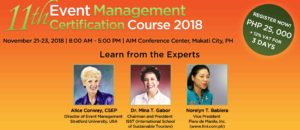The Bureau of Internal Revenue (BIR) on Friday came out with the guidelines on the collection of the excise taxes slapped on sugary drinks, in a bid to further shore up the revenue take from the new tax.
Revenue Regulations No. 20-2018 issued by Finance Secretary Carlos G. Dominguez III and Internal Revenue Commissioner Caesar R. Dulay was retroactive as the implementation of the new taxes on sugar-sweetened beverages started last January 1 as part of the Tax Reform for Acceleration and Inclusion (TRAIN) Act under Republic Act No. 10963.
Earlier BIR data showed that from January to March, the BIR collected P7.704 billion from the tax on sugary drinks, although below the target of P7.779 billion.
Under RR 20-2018, sweetened beverages were defined as “non-alcoholic beverages of any constitution (liquid, powder, or concentrates) that are pre-packaged and sealed in accordance with the Food and Drug Administration standards that contain caloric and/or non-caloric sweeteners added by the manufacturers.”
The particular products covered by the new excise tax were the following: sweetened juice drinks; sweetened tea; all carbonated beverages; flavored water; energy and sports drinks; other powdered drinks not classified as milk, juice, tea, and coffee; cereal and grain beverages; as well as other non-alcoholic beverages that contain added sugar.
For sweetened beverages that use purely caloric sweeteners, and purely non-caloric sweeteners, or a mix of caloric and non- caloric sweeteners, the tax rate per liter of volume capacity was P6.
As for sweetened drinks using purely high fructose corn syrup or in combination with any caloric or non-caloric sweetener, the specific tax was P12 per liter.
Meanwhile, products using purely coconut sap sugar and purely steviol glycosides were exempt from the excise tax, as long as these “comply with specifications as stated in the Philippine National Standard/Bureau of Agricultural and Fisheries Products Standards 76:2010 ICS 67.180 or latest updated standards” in the case of coconut sap sugar, the BIR said.
For products using steviol glycoside, the tax exemption will be enjoyed if they comply with the Joint Food and Agriculture Organization/World Health Organization Expert Committee on Food Additives specifications,” the BIR added.
All manufacturers must pay the excise tax of locally manufactured sweetened drinks, while owners or importers must shoulder the levy for imported sugary drinks.
“In the case of sweetened beverages brought or imported tax-free into the country by persons, entities, or agencies exempt from tax and are subsequently sold, transferred, or exchanged in the Philippines to non-exempt persons or entities, including the introduction and re-introduction into customs territory of said sweetened beverages intended for exclusive use within the freeport zones, the purchaser or transferee, owner/possessor thereof shall be considered as the importer, and shall be liable for the excise tax due on such importation,” the BIR said.
As for toll manufacturers, bottlers as well as other sub-contractors of manufacturers or importers of sweetened beverages, they will not be slapped with the excise tax, according to the BIR.
Under the implementing rules and regulations, excluded from excise tax payments were the following products: all milk products (including plain milk, infant formula milk, follow-on milk, growing up milk, powdered milk, ready-to-drink milk, flavored milk, and fermented milk); soymilk and flavored soymilk; 100-percent natural fruit juices; 100-percent natural vegetable juices; meal replacement and medically indicated beverages; as well as ground coffee, instant soluble coffee, and pre-packaged powdered coffee products, the BIR said. /kga


